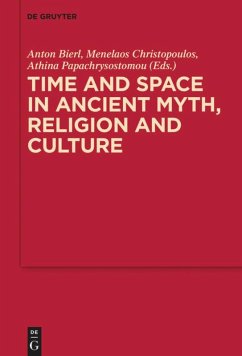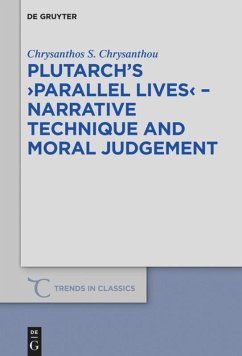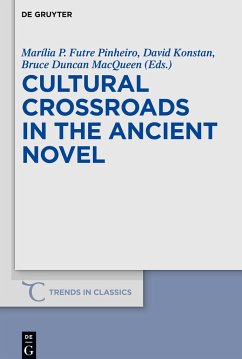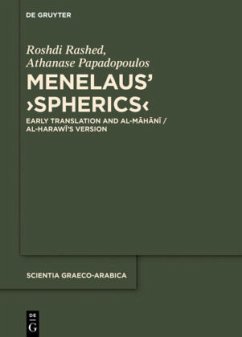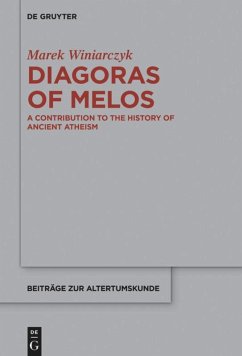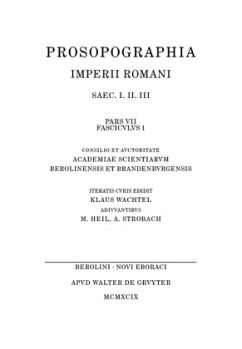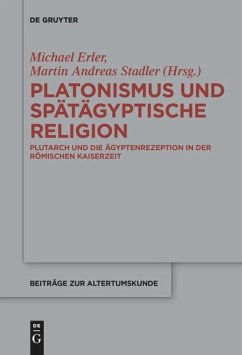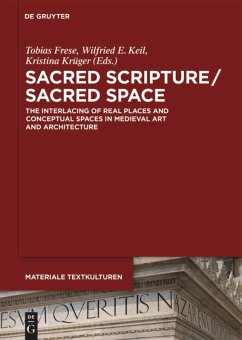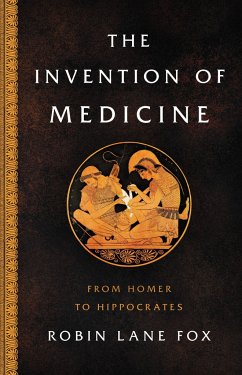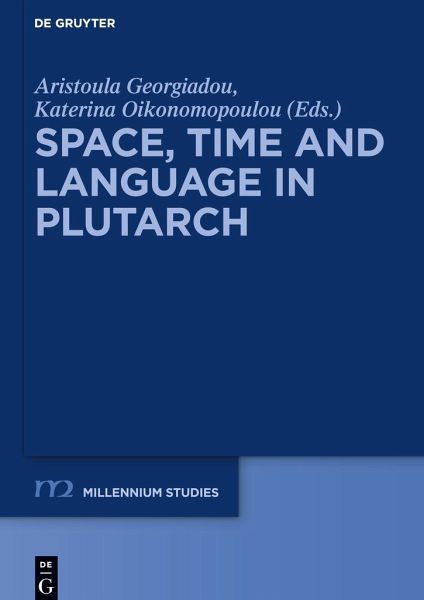
Space, Time and Language in Plutarch
Versandkostenfrei!
Versandfertig in 6-10 Tagen
154,95 €
inkl. MwSt.

PAYBACK Punkte
0 °P sammeln!
'Space and time' have been key concepts of investigation in the humanities in recent years. In the field of Classics in particular, they have led to the fresh appraisal of genres such as epic, historiography, the novel and biography, by enabling a close focus on how ancient texts invest their representations of space and time with a variety of symbolic and cultural meanings. This collection of essays by a team of international scholars seeks to make a contribution to this rich interdisciplinary field, by exploring how space and time are perceived, linguistically codified and portrayed in the b...
'Space and time' have been key concepts of investigation in the humanities in recent years. In the field of Classics in particular, they have led to the fresh appraisal of genres such as epic, historiography, the novel and biography, by enabling a close focus on how ancient texts invest their representations of space and time with a variety of symbolic and cultural meanings. This collection of essays by a team of international scholars seeks to make a contribution to this rich interdisciplinary field, by exploring how space and time are perceived, linguistically codified and portrayed in the biographical and philosophical work of Plutarch of Chaeronea (1st-2nd centuries CE). The volume's aim is to show how philological approaches, in conjunction with socio-cultural readings, can shed light on Plutarch's spatial terminology and clarify his conceptions of time, especially in terms of the ways in which he situates himself in his era's fascination with the past. The volume's intended readership includes Classicists, intellectual and cultural historians and scholars whose field of expertise embraces theoretical study of space and time, along with the linguistic strategies used to portray them in literary or historical texts.



